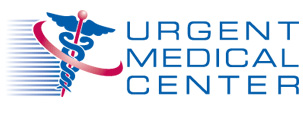
Common surgeries, like hip replacement or removal of the gallbladder, can physically stress your heart. When you undergo anesthesia and then the operation, your heart rate and blood pressure fluctuate, which can cause undiagnosed heart disease to surface.
In order to avoid serious and unexpected complications during surgery, surgeons ask patients to undergo medical clearance exams. These exams are intended to identify any underlying health conditions that could impact the success of your surgery.
There’s no guarantee when going under the knife, and even the most thorough medical clearance exams can fail to detect underlying issues. That being said, surgery always involves some measure of risk. Think of the medical clearance exam as a risk assessment, and your doctor will determine if you require more specialized testing.
The Pre-Op Exam
The pre-op exam occurs pre-operation, and is generally performed by a doctor as opposed to your surgeon. This checkup is usually held around 1 month before the date your surgery is scheduled. This provides your doctor and surgeon with plenty of time to address any medical issues prior to surgery.
The pre-op exam includes a basic physical exam, as well as discussing your health history and current health. Some surgeons ask you to speak with the anesthesiologist or pre-op nurse prior to surgery in order to further discuss the state of your health.
Pre-op reports must be forwarded to your surgeon well before the day of surgery.
When Is Further Medical Testing Necessary?
If your pre-op exam identifies underlying health conditions, or you already know you have health issues, you may need to meet with one or more of the following specialists:
-A cardiologist, or heart doctor, may be necessary if you have any history with heart conditions, if you are a heavy smoker, have diabetes or high blood pressure, or are out of shape.
-An endocrinologist, or diabetes doctor, is necessary if you have diabetes or if your pre-op exam identifies high blood sugar test results.
-A sleep doctor may be necessary if you have obstructive sleep apnea.
-A hematologist, or doctor that treats blood disorders, may be necessary if you are prone to blood clots, or have a family history of blood clots.
Are Medical Clearance Exams Always Performed?
For planned surgeries, a medical clearance exam is almost always an important factor. Any type of elective surgery is going to require a medical clearance exam. By ‘elective’ we don’t just mean plastic surgery. Elective surgery includes any procedure you have control over when it occurs. Even something like hip replacement surgery is considered elective. Cancer-related surgeries often require medical clearance as well, because you still have some control over when the surgery takes place.
Emergency surgeries or surgeries that must be performed within 24-hours do not always include a pre-medical exam.
Important Tests Conducted Before Surgery
Depending on your overall health assessment you may undergo some or all of the following:
-Blood tests, kidney, liver and blood sugar tests
-Chest x-rays to inspect your lungs
-ECG to check your heart
Additional tests may be required depending on:
-Your overall health and any health issues you are experiencing or have experienced in the past.
-Your age
-The type of surgery you are undergoing.
Additional tests include:
-Colonoscopy or upper endoscopy to look at your bowels or stomach lining.
-Heart stress test or other heart tests.
-Lung function test
-MRI Scan, CT Scan, Ultrasound test or other types of imaging tests.
Knowing The Risks Of Surgery
Low-risk surgeries include things like cataract removal or cosmetic procedures, as well as most surgeries on the hands and feet.
High-risk surgeries are classified by operations that involve opening the skull, chest or abdomen, as well as procedures that involve replacing a large joint, such as your shoulder, knee or hip.
If you have any pre-existing conditions, your doctor and surgeon are the best people to analyze your risk for surgery. If you have any type of heart disease, your cardiologist will need to perform heart-specific assessments in order to determine your risks and if it makes sense to undergo surgery. If you have other risk factors, such as high blood pressure or elevated cholesterol, you may be okay for a low-risk surgery that puts little strain on the heart with minimal risk for complications. On the other hand, a more serious or risky surgery may require treatment and observation of health prior to going under the knife.
If one or more surgeons refuse to operate on you due to underlying health conditions, it’s wise to take this advice to heart. Some people seek out other doctors that are willing to take higher risks, but that risk is ultimately your life—the most valuable thing you have.
Visit Urgent Medical Center today for on-the-spot medical clearance exams.




